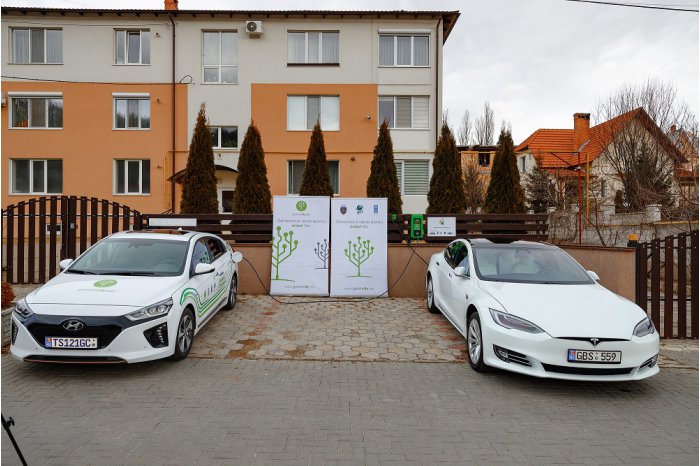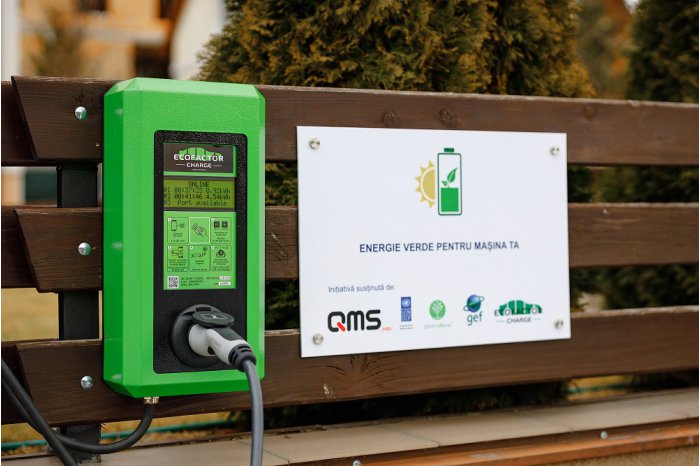First station for charging electric vehicles with renewable energy launched in Moldovan capital
17:15 | 25.02.2020 Category: Economic
Chisinau, 25 February /MOLDPRES/ - The first station for charging electric vehicles, supplied with photovoltaic energy, was launched in Moldova’s capital today. The initiative was possible with the support of the Sustainable Green Cities project of the United Nations Development Programme (UNDP Moldova), financed by the Global Environment Facility (GEF).
The technology uses worn-out batteries from electric machines, in order to stock the surplus of green energy. The initiative belongs to Maxim Abdusa – developer of a network of charging electric vehicles, who set a system of photovoltaic panels with an area of 52.48 square metres on the roof of a block of flats from Chisinau. The solar panels give green energy for the charging station, as well as for the illumination of common spaces of the residential block.
The entire technological chain promotes a sustainable model of transport with zero emissions of CO2. “The turning to account of the renewable energy is a sure way of reducing the country’s energy dependence and of having a positive impact on the environment. The use of the renewable energy helps Moldova advance in the carrying out of the Sustainable Development Goals, which the government committed to implement till 2030. At the same time, this allows people to feel the benefits of the efficient consumption of energy,” UNDP Resident Representative in Moldova Dima Al-Khatib said.
Data by the Public Services Agency shows that, in late 2019, 222 electric vehicles were registered in Moldova, twice as much against 2018. Or, in the next years, dozens of electric cars from Moldova will have to replace their battery.
„The batteries of the electric vehicles have a long lifespan, but they eventually reach a state of wear which no longer meet the performance standards. Yet, these batteries can be used for stocking the energy generated by solar panels or wind turbines,” Maxim Abdusa said.
The photovoltaic panels, set in late last year, have generated 1,350 KW of green energy. Annually, they will provide a cut of CO2 emissions of about 7,845 kg.



